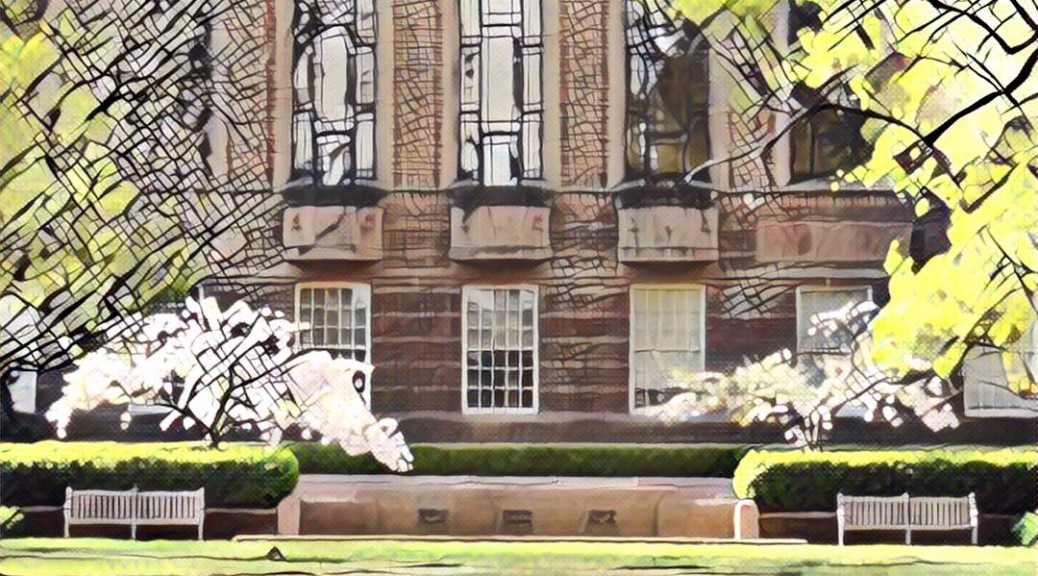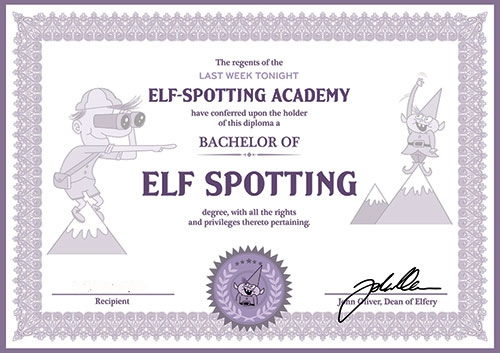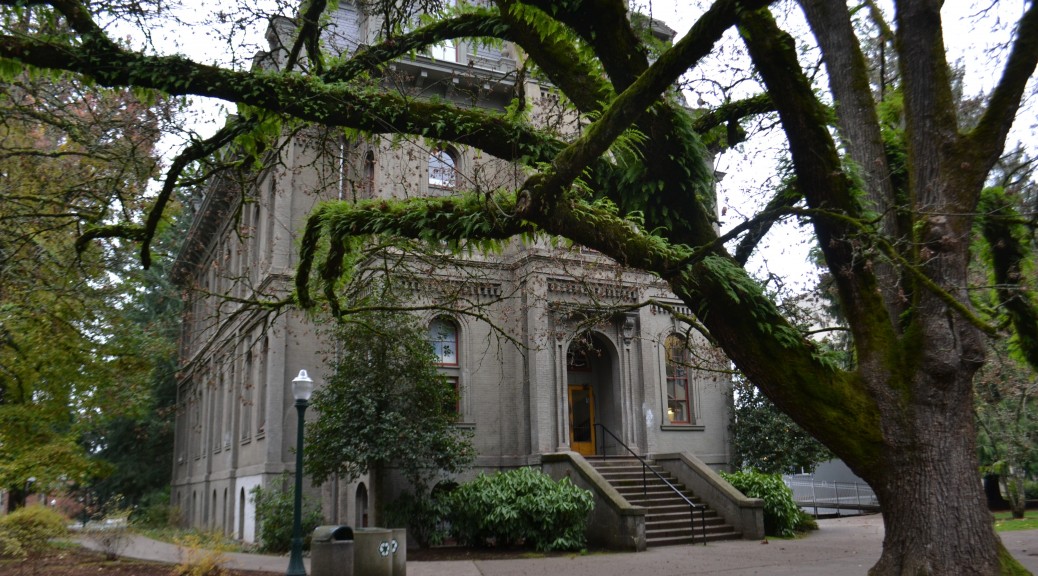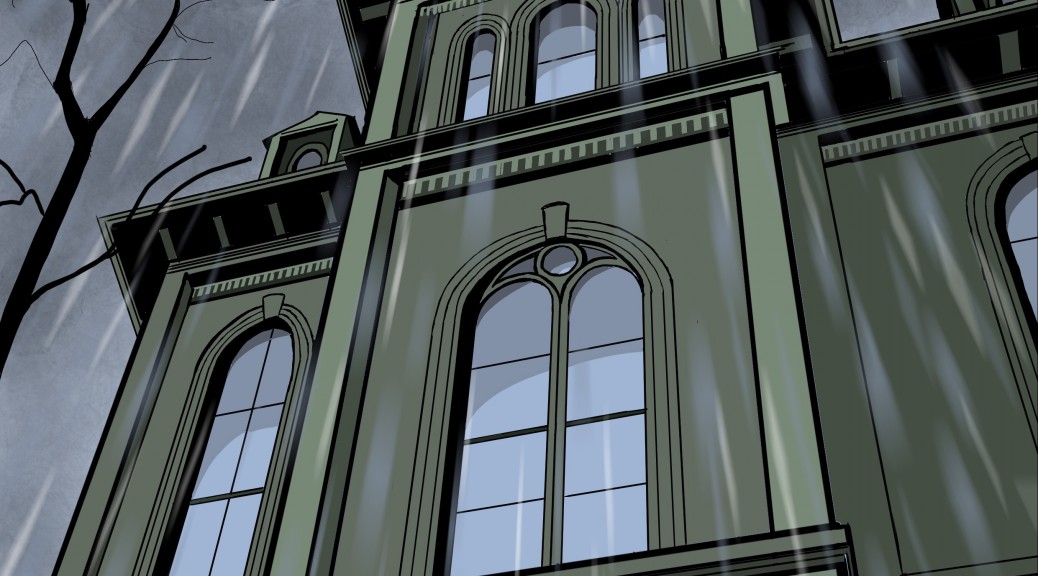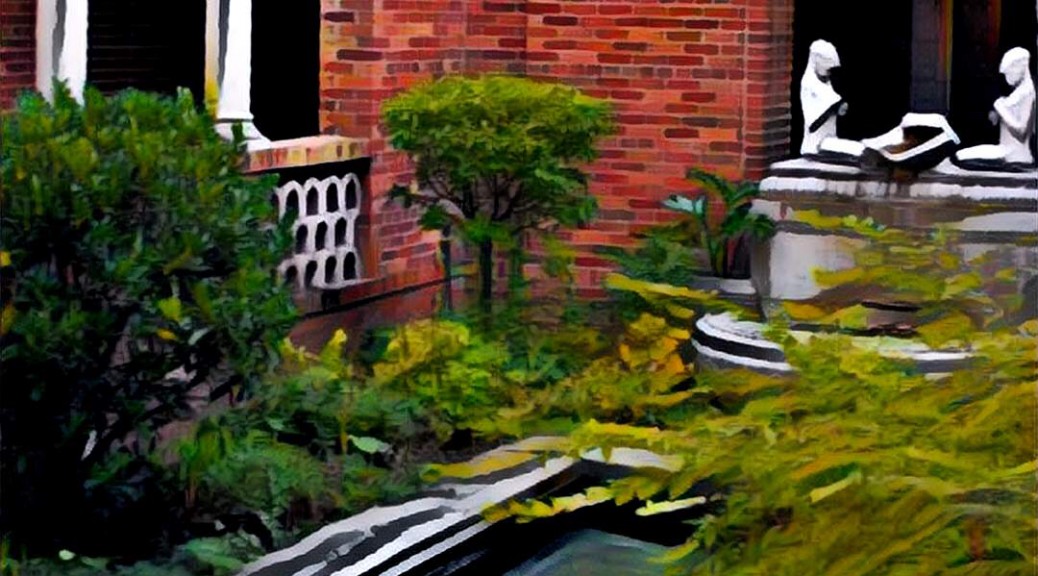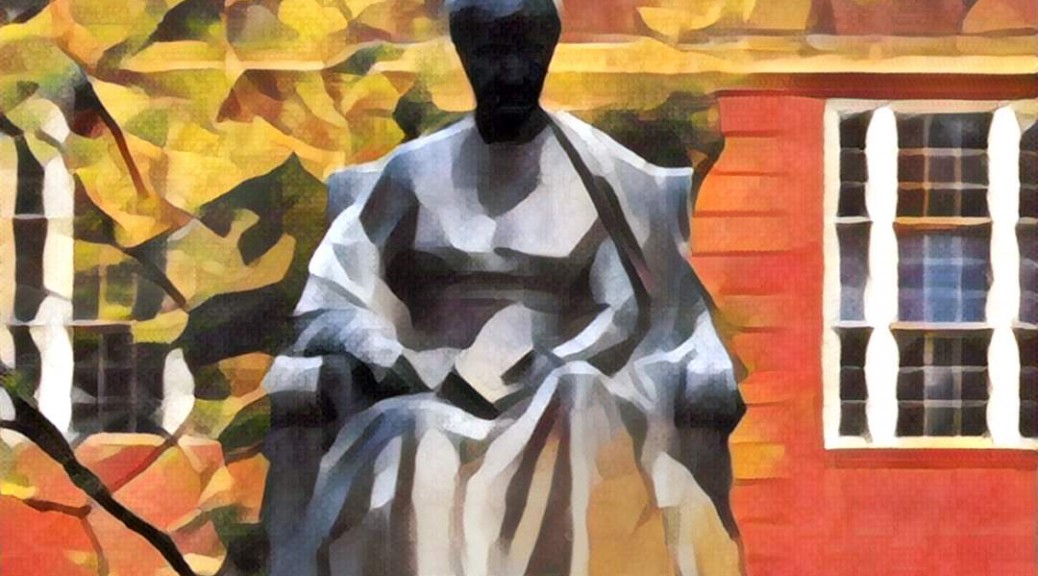3/19/2017 update with link to General Counsel’s report:
I’m still waiting for the administration to provide the Senate with a copy, but I got this version from a Emerald student journalist and it looks legit: [embeddoc url=”https://blogs.uoregon.edu/senate/files/2017/01/Media-Access-to-Athletes-and-Free-speech-Final-For-Distribution-rev-3-17-27jyxlo.pdf” download=”all” viewer=”google”]
Comments on the report and suggestions for next steps for the Senate to take are welcome. In the past I would have send this to the IAC, but given the new IAAC’s restricted charge I’m considering setting up a Task Force on Free Speech to deal with it.
Bill Harbaugh
1/23/2017 followup:
Dear GC Reed –
I’m writing as Senate President, to ask you for an update on your investigation of the Duck AD for potential violations of UO’s free speech and academic freedom policies.
Thanks,
Bill Harbaugh Senate President, Economics Professor, University of Oregon
On MondayJan 23, 2017, at 8:30 PM, Kevin S Reed <ksreed@uoregon.edu> wrote:
I’m in deep interview mode. Coming along swimmingly.
Kevin S. Reed | Vice President and General Counsel
Office of the General Counsel
219 Johnson Hall | Eugene, OR 97403-1226
(541) 346-3082 | ksreed@uoregon.edu
1/12/2017 update:
Register Guard reporter Austin Meek has a report on General Counsel Kevin Reed’s investigation of the Athletic Department here: http://registerguard.com/rg/sports/football/35172801-69/oregon-general-counsel-opens-review-into-athletic-department-media-policies.html.csp
12/1/2016 update:
Yesterday I received an email from President Schill saying that he would instruct GC Reed to investigate these athletic department free-speech issues, and report to him. I assume that the Senate will also be given this report.
I’ve already talked with several current and former Duck sports reporters, who told me about many other potential similar violations of UO free speech policies by the Athletic Department in recent years, with respect to both student-athletes and student and professional reporters.
One noted the #blacklivesmatter protest by Dana Altman’s student-athletes during the National Anthem, reported by Tyson Alger in the Oregonian here: http://www.oregonlive.com/ducks/index.ssf/2014/12/oregon_coach_dana_altman_says.html
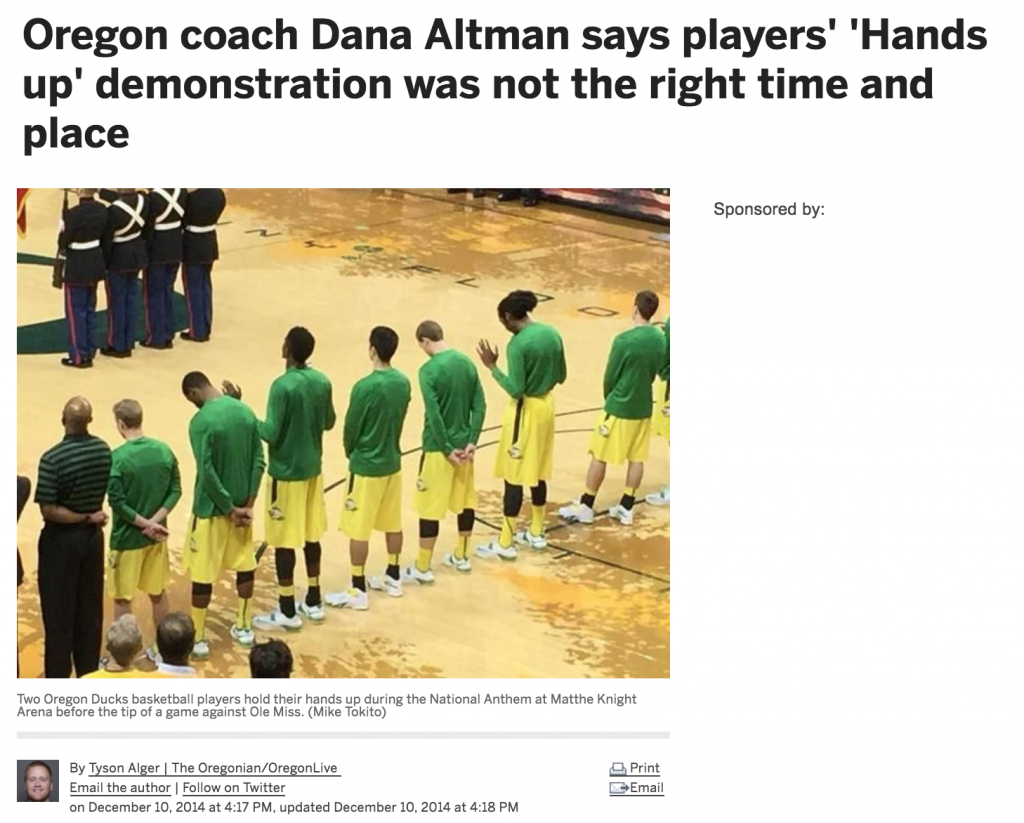
Altman chewed out his players and wouldn’t let them talk to the press afterwards.
The Senate will continue to look into these free speech issues.
From: UO Senate President <senatepres@uoregon.edu>
Subject: Free Speech for students and the student press
Date: November 27, 2016 at 10:13:14 PM PST
To: Kevin Reed <ksreed@uoregon.edu>
Dear General Counsel Kevin Reed:
We are writing you as President and Vice President of the Senate, regarding media reports that UO Athletic Department AAD Dave Williford told Oregon Daily Emerald sports editor Kenny Jacoby and other UO student-journalists that he would take away their Athletic Department issued press credentials, if the Emerald went ahead with their story on alleged assaults by UO football players. The news reports also say that the UO Athletic Department has a policy requiring that student-athletes not talk to the press without the Athletic Department’s permission.
The story is published here, https://www.dailyemerald.com/2016/11/17/oregon-tight-end-pharaoh-brown-accused-three-acts-violence-since-october-2014/ and the interview in which Mr. Jacoby explains the threat to take away his and other UO student reporters’s press credentials is here: http://www.oregonlive.com/sports/oregonian/john_canzano/index.ssf/2016/11/oregon_daily_emerald_story_dem.html.
This apparent threat from Mr. Williford, and these Athletic Department policies, procedures, or practices preventing UO students from talking to reporters may be in violation of the UO policies on Freedom and Speech and Inquiry, and on Academic Freedom. The former policy states:
The University of Oregon values and supports free and open inquiry. The commitment to free speech and freedom of inquiry described in this policy extends to all members of the UO community: Faculty, staff, and students. It also extends to all others who visit or participate in activities held on the UO campus.
Free speech is central to the academic mission and is the central tenet of a free and democratic society. The University encourages and supports open, vigorous, and challenging debate across the full spectrum of human issues as they present themselves to this community. Further, as a public institution, the University will sustain a higher and more open standard for freedom of inquiry and free speech than may be expected or preferred in private settings.
Free inquiry and free speech are the cornerstones of an academic institution committed to the creation and transfer of knowledge.
(at https://policies.uoregon.edu/policy/by/1/01-administration-and-governance/freedom-inquiry-and-free-speech)
The latter policy states:
The University’s responsibility to help students to think critically and independently requires that members of the university community have the right to investigate and discuss matters, including those that are controversial, inside and outside of class, without fear of institutional restraint.
(at https://policies.uoregon.edu/content/academic-freedom-0)
We are asking that you investigate this incident, and the relevant UO Athletic Department policies, practices, and procedures, and give a report to the Senate giving your interpretation of whether or not the UO policy on Free Speech and Inquiry and the policy on Academic Freedom, or relevant State or Federal laws, have been violated.
In particular, We ask you to address the following questions:
1) Is requiring student-athletes not to speak to the press without Athletic Department approval in conflict with UO free speech policies and law?
2) Is taking, or threatening to take, the press credentials of UO student journalists if they publish a story in conflict with UO free speech policies and law?
3) Were Mr. Williford’s actions – i.e. apparently attempting to discourage student-athletes from talking to the press, and threatening to take away the press credentials of these reporters, consistent with current UO policy?
We would appreciate it if you would send this report to the Senate by January 10, 2017. Please let us know if you have any questions.
Bill Harbaugh, Economics Prof., Senate Pres
Chris Sinclair, Assoc. Prof. Math, Senate VP














